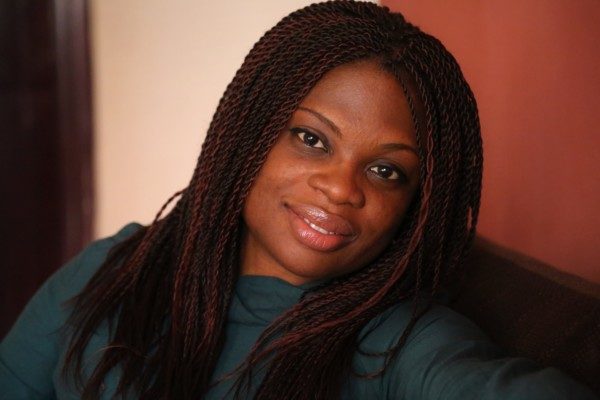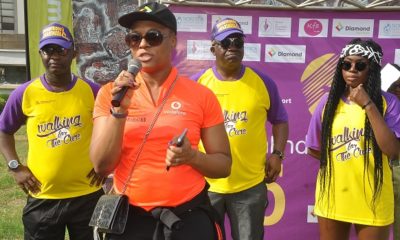Features
Beti Baiye: Of Endometriosis – The Pain & Living in the in-between Times
 As a teenager, Kedei suffered debilitating pain during her monthly periods and lived through years of her mother telling her, “Periods are always painful when you are young.” But as she grew older, the pain got steadily worse and each time she visited the hospital, she was misdiagnosed and sent home with painkillers that never really worked. Nobody was sympathetic, not even other women who generally thought she was exaggerating her pain. Kedei was in her 40s when a gynecologist finally diagnosed endometriosis. She had never heard of the disease, but was relieved that the pain was real and not ‘in her head’ as some thought.
As a teenager, Kedei suffered debilitating pain during her monthly periods and lived through years of her mother telling her, “Periods are always painful when you are young.” But as she grew older, the pain got steadily worse and each time she visited the hospital, she was misdiagnosed and sent home with painkillers that never really worked. Nobody was sympathetic, not even other women who generally thought she was exaggerating her pain. Kedei was in her 40s when a gynecologist finally diagnosed endometriosis. She had never heard of the disease, but was relieved that the pain was real and not ‘in her head’ as some thought.
The dictionary definition of endometriosis is when tissue similar to the uterine lining grows outside the uterus and other parts of the body and this can cause pain, organ dysfunction, internal bleeding and scaring.
Unfortunately, it presents as different symptoms in different women and so is hard to diagnose. One woman may have painful periods, another may have gastrointestinal symptoms and yet another may have a mash-up of all the symptoms. As a result, most woman are shuffled from doctor to doctor without anyone ever taking the time to put the pieces together.
Endometriosis is not a lifestyle disease, neither is it a disease you get later in life. It affects women in the prime of their life, sometimes hampering careers and relationships. This disease affects 1 in every 10 women globally and, according to Dr. Abayomi, founder of the Nordica fertility Centre, in Nigeria alone, about 40 percent of women and girls suffer from this condition. It is arguably the most common disease on the planet that most people have never heard of.
I suffered through years of crippling abdominal pain, finally agreeing to surgery when I was tired of propping myself up with painkillers. The operation was supposed to help ease my pain instead, it made things worse. Exactly a year later, I was back at the hospital for yet another procedure. Again, it failed to deliver what was promised. That’s when I took to research. I found out that my symptoms presented like endometriosis, but each time I spoke with a doctor, they brushed my concerns aside. Eventually, I realized that they did not know enough about it to help me. But this realisation did not come until after my third surgery.
It is only fitting that the Endometriosis Awareness week would occur at about the same time as we celebrate women all over the world. This year’s theme is, “It’s OK to Talk. Period”. In light of this, I am sharing below a depiction of my experience with pain and I hope this will encourage you to share yours. It is important that we begin to break the vicious cycle of misinformation, passed down for generations by our mothers and grandmothers that painful periods are normal and part of being a woman. If anyone you know is having these symptoms, don’t dismiss them, support them and help them find the answers. If you have these symptoms and no one is listening but you know something is wrong, don’t stop pushing. Be your own health advocate. Know your body. Be brave, be persistent and you can find the answers you need. Remember, “It is OK to Talk.”
Sometimes, he runs his fingers across my abdomen; not like a lover, no, never like a lover. Other times, he pummels my abdomen leaving me weak and gasping for breath but I can’t report him for domestic violence. They would think me mad.
Every month, he shows up in my sleep and without even a “by-your-leave” settles down to spend anything between ten to twelve days with me. He always wakes me up. I think he gets a morbid kind of pleasure out of this, at times forcing me awake with a jolt and other times, teasing me out of sleep, making me writhe with what if you were watching, you would mistake for ecstasy. I feel him on my lower back, my thigh, my knee, my stomach, touching me, always touching me when all I want is to be left alone.
Now and then, he keeps me from going to work. He never really comes out to ask me to stay – that would border on the controlling now, wouldn’t it? He makes me choose to stay home with him, snuggled up under the blankets sipping tea after tea after tea, chugging painkiller after painkiller, searching for relief that never comes.
We never talk about it, I mean, what’s there to say? We pretend like I am the dominant one, the one in control. My friends – the ones he lets me keep – think that I am the one calling the shots but him and I both know that it’s all him. He is the puppet master and I am the puppet. With him, I have learned to live in the in-between times – the times before he comes and after he leaves – where I try to find real life. But even there, his shadow hovers.
Three times before, I have tried to sever this ungodly bond that we share and each time, we have bonded tighter leaving me wishing that I had never even tried. In frustration, I went and spoke with an expert on these kind of relationships, asking him to tell me, honestly, where he thought we would end up. He stared at me for longer than I thought polite and then said, “ You must cut him off or he will one day be the death of you.”
So, I’m planning another bond-cutting ceremony, this time, grander than the other three put together and I believe that I will be fourth time lucky.
Until then, this is an ode, my ode to pain.























